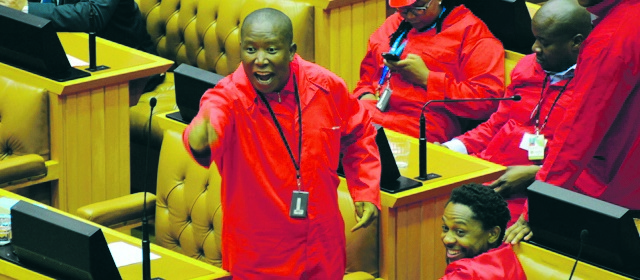
During a recent visit to Dar es Salaam in Tanzania, I spotted a quote as I entered the Julius Nyerere International Convention Centre.
Attributed to the country’s much-respected founding president, Mwalimu Julius Kambarage Nyerere, after whom the convention centre is named, it reads: “Argue, don’t shout.”
Its location is fitting, given that this is where people from around the world gather for discussions. Imagine how far they would be able to reach in their deliberations, how many issues they would be able to reach agreement or map a future course on, if all they did was shout at one another.
I could not help but reflect on the situation back home. I recently expressed a view on an online chat platform that promotes Christian debate on contemporary issues in society, that we South Africans tend to lack the skills to practise effective dialogue.
I pointed out that, on many issues we tackle, these interchanges quickly descend into shouting matches rather than people simply arguing the points, as Nyerere enjoins us to do.
This takes place across the board – in Parliament, on our shop floors, in social media. We are generally a nation of shouters, not debaters and dialoguers.
We have invented, and employ with devastating precision, an arsenal of weapons to shout at one another. One such weapon we use to shout at opponents, with the aim of silencing them, is labelling or name-calling.
During the struggle days, the most devastating – and, in many cases, deadly – thing that could happen to anyone was to be labelled an impimpi or spy. Once so labelled, anything could happen to that person with absolute impunity, including the deplorable practice of “necklacing”, which snuffed out so many lives.
Of course, anyone who dared to differ with the apartheid state or its agents, even a student protesting about any number of little injustices on campus, could be summarily labelled a terrorist. Once so labelled, assassination or, if one was lucky, indeterminate imprisonment, was meted out willy-nilly.
Labelling is still used with deadly force to strike at opponents, real or imagined. We invent new labels. If you take a view deemed contrary to what is held as mainstream progressive thought, it is not enough that you are held in suspicion of being an underground “agent” of the opposition; you are “unpatriotic”; “counter-revolutionary”.
If you happen to be of darker pigmentation, things get worse – you are a “self-hating, clever black”. We have added “CIA agent with handlers” to our name-calling lexicon.
If you are seen in the company of someone considered politically undesirable, you run the risk of being viewed with deep suspicion, if not similarly labelled.
In Parliament, yelling, with occasional shoving, has become the norm, in what makes for depressing viewing. During public protests in communities and centres of learning, we are witness to increasing physical violence and wanton destruction of property.
Violence appears to be the preferred tool for law enforcement agencies, with tragic consequences. Municipal workers and their trade unions have perfected the art of trashing our city streets and public spaces as a way to shout at their bosses during wage disputes. Intimidation and physical attacks are another set of tried-and-tested shouting tools for trade unions across the board.
The list goes on, and there is seemingly no end to it. Think of taxi shootings, road rage, the baring of buttocks, the use of language such as “killing”, and slurs such as “dog” or “cockroach”; the racial slurs that so readily jump out. Crown it all with poo-throwing in places associated with our dignity and honour as a nation, such as Parliament.
Why can’t we simply enter into dialogue in a dignified manner? What happened to a people who, through mature discourse under extremely trying circumstances, proved doomsayers the world over wrong? We are deeply thankful to those in our virtuous institutions, such as the Constitutional Court and the Public Protector, who remind us from time to time that we have the capacity to act in dignified ways. Argue if you must, but desist from shouting.
Bukula is an independent economic development analyst and facilitator of Christians in Dialogue
TALK TO US
Why do we battle to enter into dialogue in a dignified manner?
SMS us on 35697 using the keyword SHOUT and tell us what you think. Please include your name and province. SMSes cost R1.50




 Publications
Publications
 Partners
Partners








